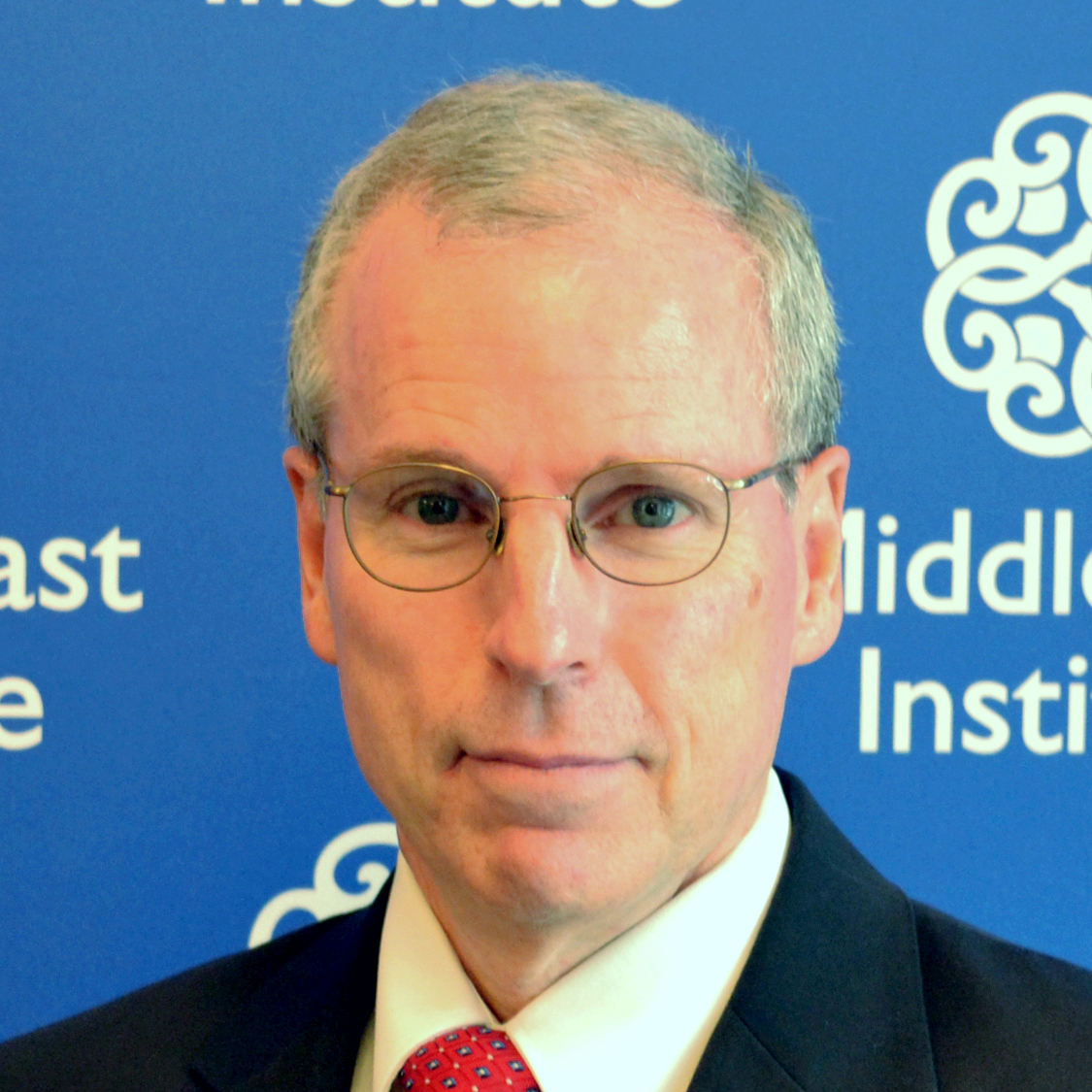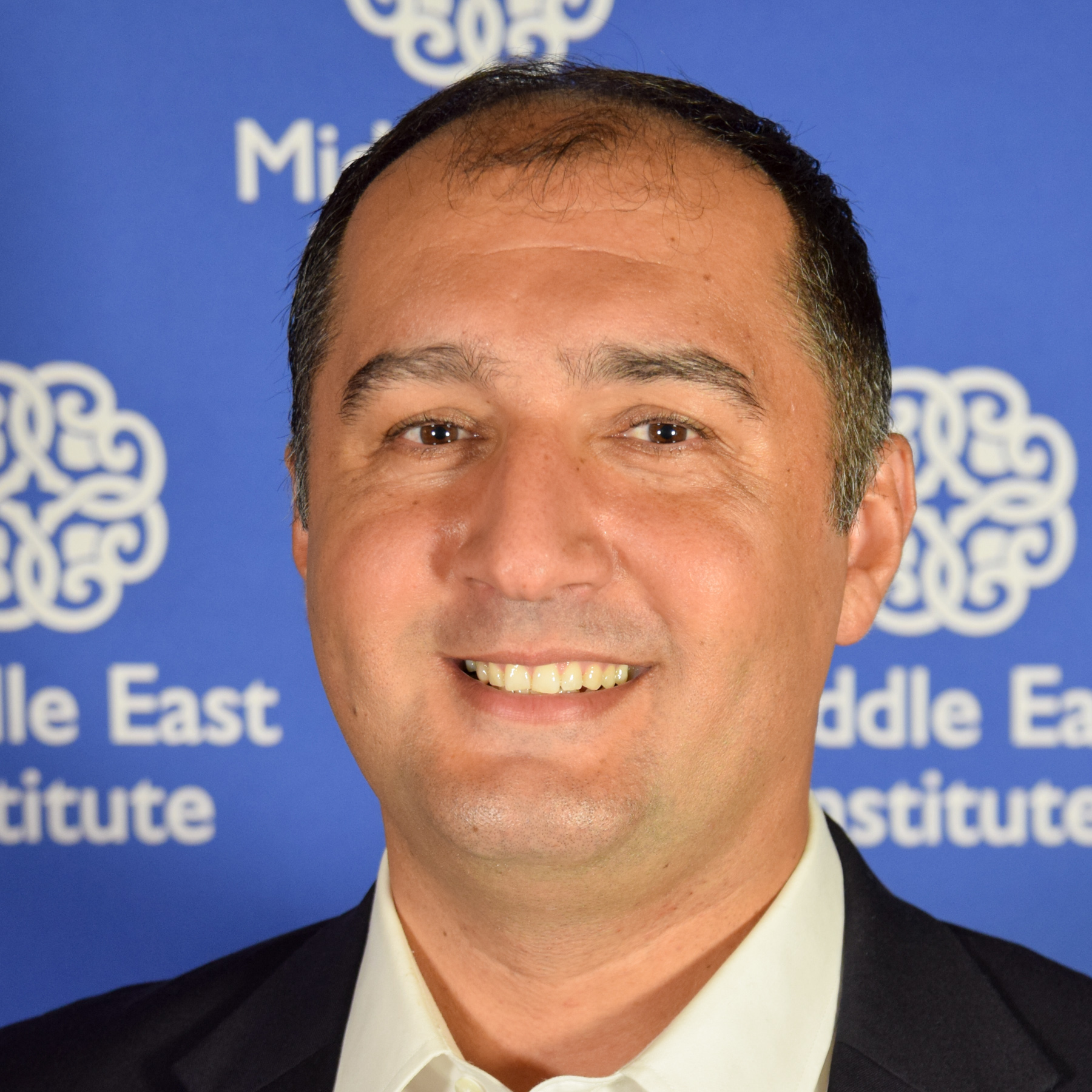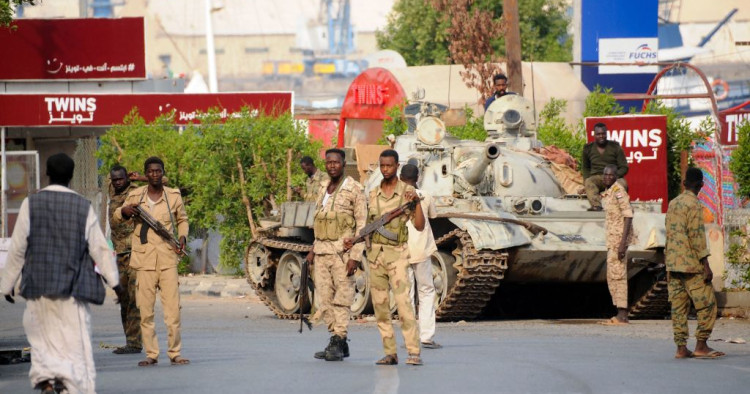Contents:
- Sudan fighting continues unabated 10 days on
- Political repression intensifies as Tunisia’s economy teeters toward collapse
- As Israel turns 75, the struggle for democracy will again pick up pace
- Tehran fails to prevent Israeli moves to outflank Iran in Central Asia
- The Taliban confronts the UN on Afghan women’s rights
Sudan fighting continues unabated 10 days on
Hafsa Halawa
Non-Resident Scholar

-
The conflict has brought to the fore the incredibly fragile transition that rose out of the removal of long-time President Omar al-Bashir in 2019, and the power struggle between a civilian political elite and a divided and competitive security apparatus.
-
As Burhan and Hemedti set themselves on a zero-sum path, it is feared that the conflict many Sudanese experts had long warned about will not end anytime soon.
In the early hours of Saturday, April 15, Sudan’s military leaders pushed the country into conflict after months of posturing and years of internal competition to assert power and dominance over the post-Bashir transition period. Within hours, Sudan’s capital city, Khartoum, descended into urban warfare as the paramilitary Rapid Support Forces (RSF), led by Gen. Mohamed Hamdan Dagalo (known as Hemedti), took to the streets, while the Sudanese Armed Forces (SAF), led by Gen. Abdel Fattah Burhan, responded from the air.
Despite four separate attempts by regional and international powers to bring the two sides to an immediate cease-fire without conditions, fighting across Khartoum, and other states, including Darfur and Northern State, has continued unabated for 10 days and is ongoing.
The conflict has brought to the fore the incredibly fragile transition that rose out of the removal of long-time President Omar al-Bashir in 2019, and the power struggle between a civilian political elite and a divided and competitive security apparatus — led by the RSF and SAF — that has consistently sought to derail the democratic transition and impose their own, individual, military-led leadership over the country. Meanwhile, the transition since 2019 has pitted regional and international partners against one another in pursuit of short-term objectives such as access to natural resources and Red Sea security, resulting in fluctuations that have, at various points, empowered one general over the other.
While the United States and United Kingdom formed a diplomatic “quad” alliance with Saudi Arabia and the United Arab Emirates, Egypt ventured on its own, seeking to shore up its security partnerships in the country after an initial scramble that saw many of its long-time allies removed from power, such as Saleh Gosh, the former head of intelligence, who now resides in Cairo. The split in regional approaches has seen the UAE strike a durable alliance with Hemedti, while Egypt backs the SAF and its leader, Burhan. For both of these countries, the calculation is one rooted in affirming military control over a transition that has acted to effectively stifle and extinguish the attempts of a civilian government to wrestle power from the security apparatus. For Egypt, additionally, the relationship with the SAF and Burhan is an existential one, based both on a deeply internalized commitment to military unity and the very real national security threats it has long warned would emerge from the type of conflict we are now seeing play out.
Indeed, despite their alliances, both Egypt and the UAE, alongside Saudi Arabia, are now clamoring to put the war genie back in the bottle, fearing the potential for regional destabilization across North and East Africa as well as the Red Sea if the conflict were to endure and protract — as seems increasingly likely amid a stream of unverified reports of different foreign interventions. However, as Burhan and Hemedti set themselves on a zero-sum path, hurling insults and death threats at one another in regular interviews on Arabic-language news channels, it is feared that the conflict many Sudanese experts had long warned about will not end anytime soon.
Follow on Twitter: @HafsaHalawa
Political repression intensifies as Tunisia’s economy teeters toward collapse
Robert S. Ford
Senior Fellow

-
The arrest of former Tunisian speaker of parliament Ghannouchi follows the detention of more than 20 other critics, ranging from the owner of Tunisia’s most popular radio station to politicians, unionists, judges, former ministers, and a businessman.
-
The Biden administration will have to calculate the real value of counter-terrorism cooperation with an increasingly authoritarian state, whose ties to the West are deteriorating and whose economy is teetering dangerously toward collapse
Last Monday (April 17), police detained former Tunisian speaker of parliament Rached Ghannouchi on charges of conspiring against the state. Ghannouchi had been questioned several times during the past year about alleged financial improprieties involving his political party, the “Islamic-democratic” Ennahda, as well as allegations that he had helped Tunisian militants travel to Syria and Iraq — all accusations he vigorously denied. The new charge against him is the most serious yet. Ghannouchi successfully urged Ennahda to compromise on Islamist principles repeatedly over the past 11 years in order to maintain ties to liberal Tunisian parties, and he seems most unlikely to have sought to overthrow the state violently. President Kais Saied’s move against Ghannouchi follows the detention of more than 20 other critics, ranging from the owner of Tunisia’s most popular radio station to politicians, unionists, judges, former ministers, and a businessman. The government closed the headquarters of the Ennahda party, which, at the onset of Tunisia’s democratic transition, was the largest in the parliament. The government also shut down the office of a coalition of political parties opposing President Saied that included Ennahda. Saied aims to diminish the role of political parties in Tunisia, and opposition to his moves is fragmented.
Major Western states and the European Union, all important economic partners of Tunisia, expressed concern about Ghannouchi’s arrest and the growing political repression inside the country. The Tunisian Ministry of Foreign Affairs promptly rejected outside “interference” in Tunisian internal affairs. It also noted that Tunis is struggling to improve the economy. The repression will only discourage prompt financial help from those partners, even as Tunisia stumbles toward default on some of its foreign loans later this summer. For example, the Biden administration’s 2024 budget proposes to slash economic aid to Tunisia from $45 million in 2023 to $15 million. It also aims to reduce military assistance from $61 million this year down to $53 million, with the cuts coming out of assistance to Tunisia’s interior and justice ministries, which are carrying out President Saied’s orders against his political opponents. However, total aid from the United States is relatively small, and the cuts ultimately will not deter Saied from consolidating his control over the state. Moreover, Tunis can take comfort from ongoing cooperation with the U.S. military in counter-terrorism. As journalist Sean Mathews reported in Middle East Eye last week, Tunisian military units participated in a major U.S.-led multilateral exercise in March and will join another one this summer. The Biden administration will have to calculate the real value of counter-terrorism cooperation with an increasingly authoritarian state, whose ties to the West are deteriorating and whose economy is teetering dangerously toward collapse.
Follow on Twitter: @fordrs58
As Israel turns 75, the struggle for democracy will again pick up pace
Nimrod Goren
Senior Fellow for Israeli Affairs

-
In April, Netanyahu tried to weaken domestic and international opposition to his policies as well as avoid an Israeli-Palestinian flare-up by adopting a more moderate approach.
-
After the April holidays pass and the Knesset comes back from recess, he is likely to continue advancing a judicial overhaul; but Israel's pro-democracy movement is well-prepared to try to prevent that.
April had the potential to be challenging for Israeli Prime Minister Benjamin Netanyahu: An Israeli-Palestinian flare-up seemed likely as Passover and Ramadan were about to overlap; Israel’s security establishment was warning of Hezbollah’s, Iran’s, and Hamas’ intentions to act against Israel, perhaps simultaneously; pro-democracy protests were about to peak around key national days; and criticism from the administration in Washington was mounting.
Netanyahu faced this period — in which the Israeli parliament is in recess — by trying to calm things down somewhat, avoid a security escalation, smooth things over to a certain extent with the United States, weaken the protest movement, emphasize that Israel is not in a moment of crisis, as well as showcase that he is in charge and practicing responsible leadership.
He indicated his intention to backtrack from some legislative initiatives, acknowledging that earlier plans could not be realized in their original form. He also conveyed messages about reaching compromises and consensus, painted a rosy picture of the domestic situation in media interviews, walked back his previous announcement about firing Defense Minister Yoav Gallant, signaled that far-right Likud parliamentarian May Golan will not be appointed consul general in New York after all, and canceled public appearances that were likely to spark protests. In parallel, he took some steps to prevent further escalation with the Palestinians.
The coming days, in which Israel will celebrate 75 years of statehood, will present additional hurdles to this approach: Activists from rival camps are planning mass protests in Tel Aviv and Jerusalem, while several far-right cabinet ministers intend to deliver official speeches at military cemeteries, despite requests from bereaved families to avoid mixing politics with remembrance ceremonies this year. The government’s conduct is also politically polarizing the country’s official Independence Day eve ceremony (April 25).
Consequently, Netanyahu may now be adopting a new tactic to achieve his original goals. He is seemingly turning to a more gradual judicial overhaul process, but one that will still end up dramatically eroding Israeli democracy. This is precisely the scenario that Israelis are repeatedly warned against by colleagues in Poland, who have experienced the same thing there.
All of this resembles Netanyahu’s previous conduct on the Palestinian front. After dramatically declaring his intention to formally annex Palestinian territories, and after facing domestic and international pushback, Netanyahu decided in 2020 to drop his initial plan. But he replaced it with a process of creeping, de facto annexation, which would eventually lead to the same goal.
Whatever happens around Israel’s Independence Day, the real test lies in the weeks ahead. In early May, the Knesset will come back from recess and legislation processes will resume, at one pace or another. The pro-democracy movement is not losing sight of this. In April, it succeeded in maintaining momentum, keeping people on the streets, and showcasing its impact. After a month of relative quiet, the two rival camps in Israel are ready to step up their struggle over the country’s identity and basic values.
Follow on Twitter: @GorenNimrod
Tehran fails to prevent Israeli moves to outflank Iran in Central Asia
Alex Vatanka
Director of Iran Program and Senior Fellow, Black Sea Program

-
Israel’s triumphalism over opening an embassy in Ashgabat, less than 20 miles from the Iranian border, is more about the PR point it just scored against Iran than a sign of some qualitatively new relationship with Turkmenistan.
-
Tehran apparently urged Ashgabat not to launch the embassy or host the Israeli foreign minister by appealing to Turkmenistan’s Muslim identity and raising the Palestinian issue, but the growing trend across the region is toward recognition and normalization of relations with Israel without abandoning the Palestinians.
In the latest twist in the ongoing Iranian-Israeli regional rivalry, the latter country has pulled off a diplomatic triumph of its own: Last week, Israel opened a permanent embassy in Ashgabat, the capital of Turkmenistan. The new embassy building is less than 20 miles from the Iranian border, a fact that Israeli Foreign Minister Eli Cohen noted with much satisfaction.
This triumphalism is more about the PR point Israel just scored against Iran than a sign of some qualitatively new relationship between Israel and Turkmenistan, which, in fact, have carried on diplomatic relations since 1993. Nonetheless, Israel’s strategic message to Tehran is clear: If Iran can project power against Israel via its regional allies such as Hezbollah in Lebanon, then Israel will respond in kind by edging closer to the Iranian homeland. Cohen did not put it quite so bluntly, but the message is hard to miss.
Tehran had strived to prevent the embassy’s opening. According to Iranian media, Iran’s President Ebrahim Raisi had in a recent call with his Turkmenistani counterpart, Serdar Berdymukhamedov, urged Ashgabat not to host Cohen or launch the embassy. Raisi had apparently sought to appeal to Turkmenistan’s Muslim identity by raising the issue of Israeli policies toward the Palestinians.
While that line of argument worked for a long time in the Islamic World, the Turkmenistanis today are hardly the only Muslims to look at relations with Israel beyond the optics of the Israeli-Palestinian conflict. Among Iran’s neighbors, Turkmenistan is joining Muslim-majority Azerbaijan, Bahrain, Turkey, the United Arab Emirates, the Kurdish regional government in Iraq, along with Christian-majority Armenia in having diplomatic relations with Israel. Indeed, Iran’s insistence on refusing to accept Israel’s right to exist has very much become the outlier position in the Middle East.
Turkmenistan’s motive is also clear, in light of the above-mentioned regional shifts. The secluded Central Asian state has long wanted to avoid becoming a battleground for an Iranian-Israeli proxy war. And in fact, Ashgabat had twice refused to accept Israeli ambassadors on charges they were intelligence operatives. But the growing trend of finding ways to co-exist with Israel through diplomatic recognition — though without abandoning the Palestinians — finally made it to Ashgabat.
The Turkmenistanis will still want to avoid being drawn into a conflict and hope to see elevated relations with Israel pay off with the realization of some of the promises made by the Israeli side. As Cohen put it, Israel plans to develop economic relations with Turkmenistan, including in the agricultural sector and the transfer of water technology.
This is Israel’s big test: Can it prove itself as a worthwhile economic partner for Ashgabat? The Iranians made the same promises to the Turkmenistanis in 2015. At that time, Tehran and Ashgabat eyed trade of $60 billion by 2025, but trade volumes remain small at around $200-$300 million a year. A heavily-sanctioned Iran could never realistically deliver on its economic promises.
For now, Israel has scored a point against Tehran, which had been flying high following the March 10 diplomatic normalization agreement with Saudi Arabia. The message from that accord was that Iran cannot be isolated in the region. Nor can the Israeli state, is Israel’s response with the opening of its new embassy in Ashgabat. Meanwhile, countries in the region, like Turkmenistan, that want cordial relations with both Iran and Israel have a challenging balancing act to perform.
Follow on Twitter: @AlexVatanka
The Taliban confronts the UN on Afghan women’s rights
Marvin G. Weinbaum
Director, Afghanistan and Pakistan Studies

-
Despite growing criticism, not only has the Taliban’s ultra-conservative leadership clique refused to alter schooling decisions, but resentment over international condemnation seems to have stiffened its determination to stand firm.
-
International humanitarian assistance groups have threatened to reduce aid, which presents a powerful test of the Taliban’s resolve to resist criticism.
The Taliban regime’s campaign to dehumanize and disempower Afghan women continues apace. As well as being officially barred from schooling, highly restricted in their travel, forced to wear a full burka, and generally denied outside employment, including by domestic and foreign non-governmental organizations (NGOs), women have most recently been prohibited from working for organizations associated with the United Nations. These exclusions threaten the continued delivery of international humanitarian assistance, which currently serves the needs of two-thirds of Afghanistan’s population. Several aid-giving NGOs have already suspended activities, and two critical U.N. agencies, which anticipate losing the services of hundreds of Afghan women on their in-country staffs, are seriously considering rolling back or ending their local aid operations.
The economic impact on Afghanistan of the Taliban’s decrees affecting women is far reaching. With women largely consigned to their homes, many thousands have lost their only source of income. The strong contribution that, for 20 years, female Afghans have brought to building the national economy is gone. Displeasure with the Taliban’s treatment of women has figured in the hesitancy of American and European banks to release to Afghanistan $9 billion in frozen assets that could help stabilize its financial system. There are also clear indications of international donor fatigue, worsened by the Taliban’s social policies. Many governments that had initially withheld humanitarian aid contributions after the fall of Kabul but soon thereafter resumed their support are now apparently reassessing that decision. There is concern that despite a very recently launched U.N. appeal for countries to provide $4.6 billion in aid for the most vulnerable Afghans, donors will fund far less.
Meanwhile, the direct humanitarian consequences of the Taliban’s policies toward women are plainly visible, as, due to cultural and social reasons, female involvement is critical for aid agencies to deliver aid to other women. Female workers are indispensable for the provision of women’s health services and for the classroom instruction of those girls allowed schooling through the sixth grade. A failure to educate most Afghan girls and women will, thus, have serious implications for the future of the country’s medical and educational sectors. Despite growing criticism, not only has the Taliban’s ultra-conservative leadership clique refused to alter schooling decisions, but its resentment of the international condemnation seems to have stiffened its determination to stand firm.
All the same, threats by international donors and aid organizations to reduce their humanitarian assistance to Afghanistan present a powerful test for the Taliban’s resolve to resist global criticism of their policies. While the withholding of diplomatic recognition and financial and development aid to effect policy changes has largely failed, the sharp decline or termination of humanitarian aid programs may prove too costly, forcing the Taliban to rethink the continued adherence to their self-defined Islamic principles. Any sharp cut-back of aid that results in greatly intensifying hunger or widespread starvation could set off enormous social dislocation and political upheaval. A massive refugee surge and popular discontent that strengthens organized armed resistance and exacerbates internal Taliban dissent could be what brings about the regime’s undoing.
Follow on Twitter: @mgweinbaum
Photo by AFP via Getty Images
The Middle East Institute (MEI) is an independent, non-partisan, non-for-profit, educational organization. It does not engage in advocacy and its scholars’ opinions are their own. MEI welcomes financial donations, but retains sole editorial control over its work and its publications reflect only the authors’ views. For a listing of MEI donors, please click here.













